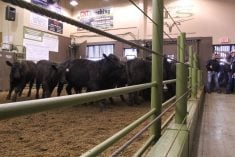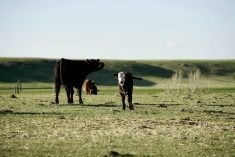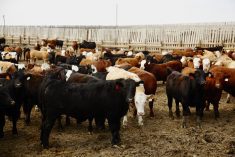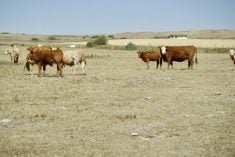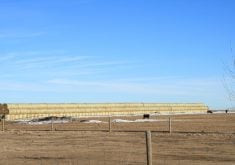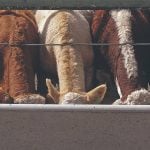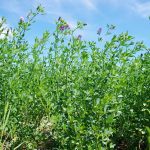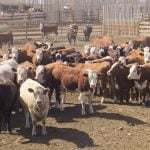Journalists pack the room at Solvet’s operations in Calgary, Alta., hands in the air as they pepper Anders Olson with questions. A table holds Gatorade and donuts for the media tour, part of the International Federation of Agricultural Journalists Congress held in Olds, Alta., this summer. Anders Olson, product manager and sales support for the company, answers questions as a packet of green castration bands, packaged in aluminum foil just like gum, circulates through the room. It’s easy to imagine the crackle you’d hear if you popped a band from the foil.
If you didn’t know better, you’d wonder why castration bands were eliciting so much interest. But these aren’t the typical little green bands found on farms and ranches across Canada — they’re infused with a local anaesthetic called lidocaine.
Dr. Merle Olson, who along with Dr. Barb Olson co-founded Solvet and Alberta Veterinary Laboratories, says finding a way to make castration bands pain-free was an important task for Solvet.
Read Also
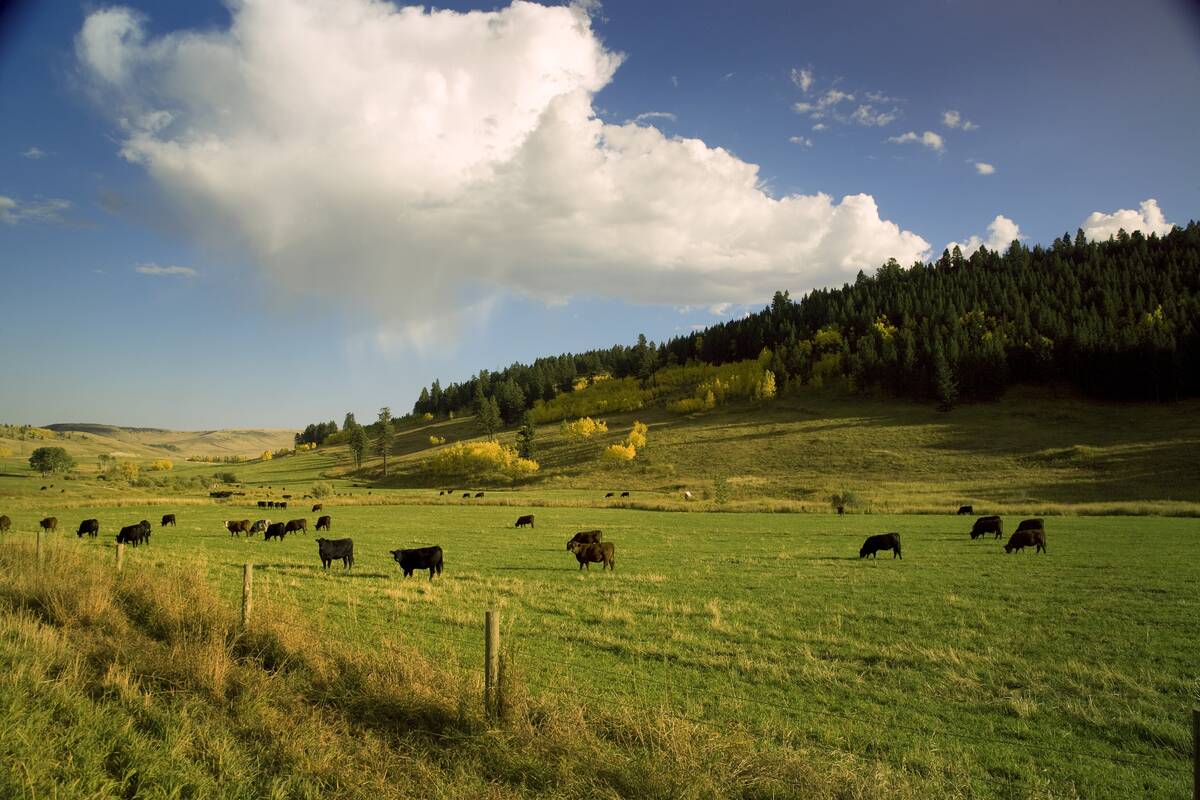
The Canadian Cattle Association’s international advocacy efforts
Global ag policies affect Canadian food policy, so the Canadian Cattle Association participates in international and domestic forums
“Putting a band, whether it’s the little small ones or the large ones for feedlot, are very painful and they’re painful for quite a while,” Olson says. “We even make oral meloxicam for short-term pain or even lidocaine injections for short-term, but there was nothing for long-term pain that would last for weeks. So our team went back to the lab, and we actually found a way to impregnate lidocaine into those bands.”
The band went through hundreds of different trials over five years, and is now almost ready for the market.

Olson says one of the most challenging parts was figuring out how to infuse the bands with lidocaine, as it’s the first product of its kind.
“So we had to develop the process. So we had to find a way to impregnate the latex in the band with the lidocaine and it was not a simple process.”
The lidocaine in the bands lasts 42 days and is released slowly, relieving the animal’s pain the entire time.
“So basically, when you put it on, within about 30 minutes, the tissue was numb,” Olson says.
Focus on animal welfare
For Solvet, pain management is a big part of the work they do. In 2015 they started this work by releasing Meloxicam Oral Suspension, a product to treat pain from injuries, illness, calving and surgical procedures, which at the time included castration.
Olson says pain management is important to Solvet because animal welfare is important, and creating products like the castration band will continue making this a key aspect of their work.
“I think all animal welfare products for livestock are increasing,” Olson says. “I think this product, the way we set it up, the way we’ve made it, it’s going to address a lot of major issues with respect to band castrations.”
Lionel Gibbs, CEO of Solvet, says the upcoming release of this product is exciting not just for Solvet, but for the future of the industry.
“That particular treatment was managed forever and ever without pain meds,” Gibbs says. “Obviously, you can imagine it probably didn’t feel all that wonderful … in today’s animal welfare heightened scrutiny on that, it’s very exciting.”
Animal welfare has been a conversation in agriculture for years, but Olson thinks it will become even more prevalent, for everyone involved.
“Farmers and consumers don’t want our animals to feel pain at any time if they don’t have to,” Olson says. “I mean, really, this is the future of cattle management; pain control and animal welfare are top of the list.”
With similar pain management products coming to market, people will be more likely to continue consuming animal products knowing that animal welfare was taken into account, says Olson.
“The consumers who are actually buying products want to make sure that there’s pain control at all times.”
As a vet, animal welfare is important to Olson as well and continues to be a pillar of the work that Solvet does.

International interest
Although Solvet is a Canadian company and its products are manufactured in Canada, the interest in its products extends far beyond Canada. Recently, the product gaining the most interest is the lidocaine band.
“We were contacted by the U.K. department of agriculture,” says Olson. “They are very interested in this band … they are internationally subsidizing, paying the farmers actually to use the band. That’s how important it is in the United Kingdom.”
In an emailed statement, the U.K.’s department for environment, food and rural affairs writes that within the U.K., castration without anaesthetic must be done with a rubber ring or other device.
“When any other method is used, an anaesthetic must be administered where the calf is two months or over,” the U.K. government writes. “All animal medicines must be licensed by Veterinary Medicines Directorate proving their safety and efficacy.”
Other countries are interested in this product, as well.
“We were just at an international meeting in P.E.I. where they had representatives from 38 countries,” says Gibbs. “And we were there to pitch some of our products … and the band was the star of the show because obviously there’s a billion bands used worldwide.”
Future
The castration band will be available in the U.S. market first, by the end of 2023. The Canadian market is harder to break into, but Olson expects the band to be available in a year, with Australia, New Zealand and the EU following around the same time.
From there, they plan to make the band even more effective.
“We are also looking at putting an insecticide into the band,” Olson says. “Because a lot of times they’re being bothered by flies at the site. So that’s one of the things we’re working on now to actually look at fly control as well as pain control at the castration site.”





